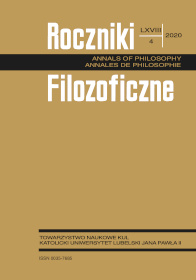Does Science Rule Out a Personal God? Is Faith Compatible with Evolution?
Abstract
This text lays out three distinct ways in which people who have been exposed to science are now responding to the following questions: “Does science rule out a personal God?” and “Is faith compatible with evolution?” The first kind of response claims that the natural sciences and religious faith are mutually exclusive. This is the conflict position. Its representatives include two main subgroups: (1) skeptics who believe that the natural sciences have made all religious claims unbelievable, and (2) people of faith who refuse to accept certain scientific ideas such as Big Bang cosmology and biological evolution. However, in the present text conflict refers only to scientific skeptics, those who claim that scientific method and discoveries now make religious faith and theology obsolete.
A second type of response to the questions listed claims that science and faith are each concerned with different levels or dimensions of reality. Science and theology, according to this approach, ask completely different kinds of questions, and so it makes no sense to place them in competition with each other. The contrast approach, as we call it, maintains that there can be no real conflict between the claims of natural science and those of faith and theology. Contrast insists that faith and science are not competing for some common goal, so they cannot come into conflict with each other.
A third approach is that of convergence. It might also be called “consonance,” “cooperation,” “contact,” or “conversation.” Convergence agrees with the contrast approach that religious faith and natural science are distinct ways of understanding the world, but it argues that the two inevitably interact. Convergence promotes this interaction. Its objective is to arrive at a synthesis in which both science and faith keep their respective identities while still relating closely to each other in a shared pursuit of intelligibility and truth. Convergence assumes that scientific discoveries matter to faith. In other words, scientific findings can make a significant difference in how we think about God and the meaning of our lives. Convergence wagers that science and faith, as long as they are not confused with each other, can together continue to a richer view of reality than either can achieve on its own.
References
Behe, Michael J. Darwin’s Black Box: The Biochemical Challenge to Evolution. New York: Free Press, 1996.
Birch, Charles. Nature and God. Philadelphia, PA: Westminster, 1965.
Coyne, Jerry A. Why Evolution Is True. New York: Viking, 2009.
Dawkins, Richard. „Tanner Lecture on Human Values”. Wykład wygłoszony na Harvard University, 19–20.11.2003.
Dawkins, Richard. Ślepy zegarmistrz czyli jak ewolucja dowodzi, że świat nie został zaplanowany. Tłum. Antoni Hoffman. Warszawa: Państwowy Instytut Wydawniczy, 1994.
Dawkins, Richard. The God Delusion. New York: Houghton Mifflin, 2006.
Dembski, William. Intelligent Design: The Bridge between Science and Theology. Downers Grove, IL: InterVarsity Press, 1999.
Dembski, William. The Design Inference: Eliminating Chance through Small Probabilities. Cambridge: CUP, 1998.
Dennet, Daniel C. Consciousness Explained. New York: Little, Brown and Co., 1991.
Einstein, Albert. Ideas and Opinions. New York: Crown Publishers, 1954.
Eldredge, Niles. The Monkey Business: A Scientist Looks at Creationism. New York: Washington Square Press, 1982.
Greene, John C. Darwin and the Modern World View. New York: New American Library, 1963.
Hardwick, Charley. Events of Grace: Naturalism, Existentialism, and Theology. Cambridge: CUP, 1996.
Harris, Sam. Letter to a Christian Nation. New York: Alfred A. Knopf, 2007.
Haught, John F. God after Darwin: A Theology of Evolution. Boulder, CO: Westview, 1999.
Haught, John F. Making Sense of Evolution. Louisville, KY: Westminster John Knox Press, 2010.
Haught, John F. Science and Faith: A New Introduction. New York–Mahwah, NJ: Paulist Press, 2012.
Haught, John F. The Cosmic Adventure. New York: Paulist Press, 1984.
Haught, John F. The Promise of Nature: Ecology and Cosmic Purpose. New York–Mahwah, NJ: Paulist Press, 1993.
Hawking, Stephen, and Leonard Mlodinow. The Grand Design. New York: Bantam Books, 2010.
Johnson, Philipp E. Darwin on Trial. Downers Grove, IL: InterVarsity, 1991.
Moreland, James Porter, ed. The Creation Hypothesis: Scientific Evidence for an Intelligent Designer. Downers Grove, IL: InterVarsity Press, 1994.
Moser, Paul K. The Elusive God: Reorienting Religious Epistemology. New York: CUP, 2008.
Pannenberg, Wolfhart. Faith and Reality. Tłum. John Maxwell. Philadelphia: Westminster Press, 1977.
Pannenberg, Wolfhart. Toward a Theology of Nature: Essays on Science and Faith. Louisville, KY: Westminster John Knox Press, 1993.
Peters, Ted. God—The World’s Future: Systematic Theology for a New Era. Wyd. 2. Minneapolis, MN: Fortress Press, 2000.
Rosenberg, Alex. „Why I Am a Naturalist”. New York Times, 17.09.2011.
Teilhard de Chardin, Pierre. How I Believe. New York: Perennial Library, 1969.
Weinberg, Stephen. Dreams of a Final Theory. New York: Pantheon Books, 1992.
Wells, Jonathan. Icons of Evolution: Science or Myth? Washington, DC: Regnery Publishing, 2000. Pennock, Robert T. Tower of Babel: The Evidence against the New Creationism. Cambridge, MA: MIT Press, 1999.
Copyright (c) 2020 Roczniki Filozoficzne

This work is licensed under a Creative Commons Attribution-NonCommercial-NoDerivatives 4.0 International License.





